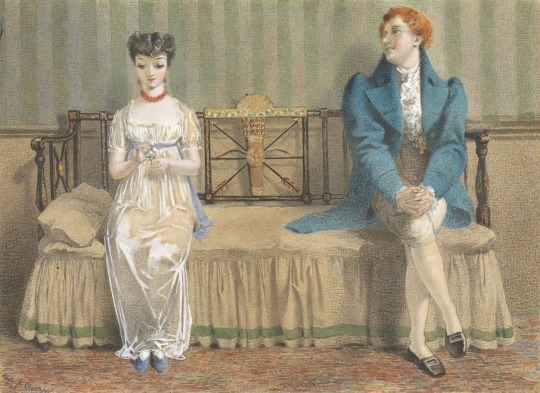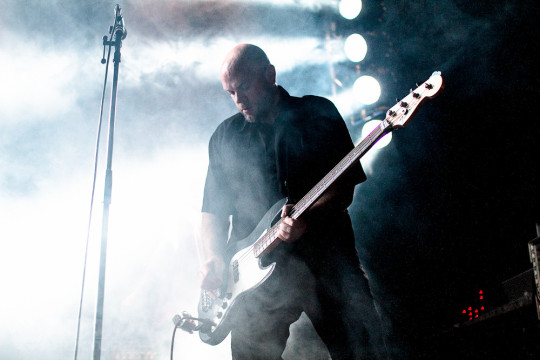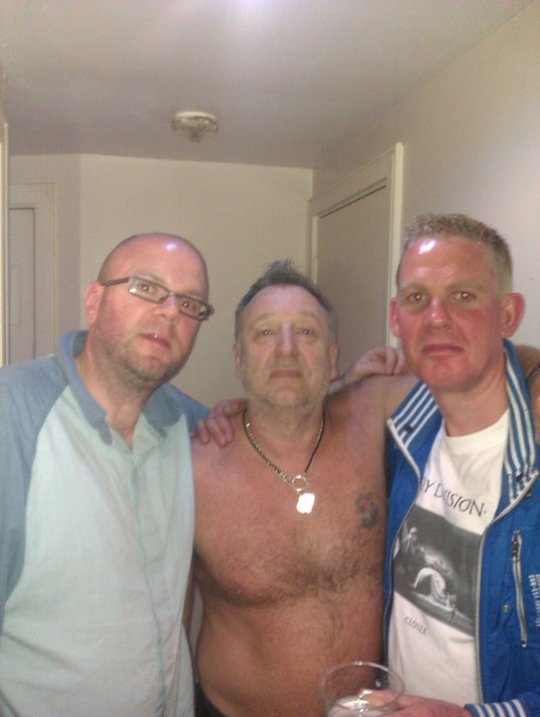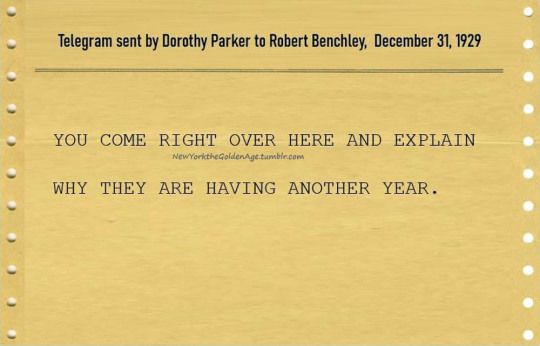Bass la at Jimmy Cake industries. Writer. Hoovering fanatic. Here I will stick the ephemera of our shared, sybaritic past.
Don't wanna be here? Send us removal request.
Text

8 notes
·
View notes
Photo
This should be us, but I can't find my garters

Courting, 1868 by Adelaide Claxton (English, fl.c.1858–1905)
433 notes
·
View notes
Text

I used to be cool.
photo by Audioapeture
4 notes
·
View notes
Text
I ask myself, should I? Dare I?
What's the worst that can happen?
1 note
·
View note
Photo

Diplah is Disappointing turned 5 today!
1 note
·
View note
Video
youtube
Observatory Destroyer, first track on our new album, which will be out this year.
2 notes
·
View notes
Text
Help fund Popular Music
The Jimmy Cake need your help to get record number 5 out the door.
http://www.fundit.ie/project/popular-music-from-the-jimmy-cake
‘Popular Music' is the new album from Dublin collective The Jimmy Cake coming soon on 180g double vinyl and accompanied by some darkly magnificent illustrations from Jack Teagle . The album is 72 minutes spread across 3 tracks and 4 sides of vinyl. It’s an ambitious undertaking, but we’re very happy with the results of the recording, and are confident that you will be too. We’ve incorporated nearly every element of influence we’ve ever had. It’s all in there at some stage, from the heavy, doom infused Observatory Destroyer to the Krautrock inflected Space Champion. In order to release the album we need to raise the money to get it mixed, mastered and manufactured. That’s where the funders come in. We’ll be offering the music in various formats as well as some very limited and very wonderful Jack Teagle merchandise. If you're not familiar with Jack then we STRONGLY urge you to check out his work at http://jackteagle.co.uk/. We’re not really the types to sing happy birthday down the phone to you, or to set up our fifteen keyboards in your front room, but for €1,000 euro you can have all our shoes. For €2,000 we’ll stage an intervention for a loved one who’s gone astray and for €3,000 we’ll do a live score for some significant life event: bar mitzvah, birth of your child, appendectomy, whatever you like. To whet your appetite we’ve included a video of the band rehearsing the album’s opening track, Observatory Destroyer, filmed by Sean Tracey and recorded and mixed by Spud. Thanks for listening. Paddy, Parx, John, Vinnie, Dip, Lisa, Paul x .
1 note
·
View note
Text
I had this to say about that
For State.ie
The Sex Pistols
Is it oxymoronic to be a punk with aspirations? That was me, briefly, more moron than oxy, truth be told. Back when I was 14 I had a punk band, we aspired to destroy, though were hampered by middleclassness. We were called Decadent Objectives and were abject in a way that couldn’t be merely explained by our age. However, as punk aspirants, that hardly mattered. All we really wanted to do was write songs about chaos, cider and what sex with girls might actually be like. They were heady days, and in our way, we were changing the world. Our world at least, and the world of anyone in earshot, rarely for the better.
At the time we were railing against the injustices of being a teenager, not being able to afford the cider we wailed about, and the muzak in the charts, which was infected with the very antithesis of punk rock; teeny bopper crap, S.A.W. ditties, bronzed boybands in American high school jackets. They, in their way, were as much a reaction to punk’s fallout as punk was to the disco and prog that clogged the airwaves in the late seventies. Despite its ephemeral lifespan, punk empowered a generation of music makers, and the charts in the eighties reflected that. Before long, New Wave and post punk had become the mainstream, TOTP was inundated with dour men and minor inflected electronic music. Punk’s many tentacles spread out over the airwaves. From PiL doing Death Disco on Top Of the Pops, to the Stranglers, The Bunnymen, The Smiths and the Cure emerging from a punk germination to become chart behemoths, New Order sold twelve inches by the bankrupting shedload, and even Captain Sensible got in on the act. The bands that railed against the establishment had become the establishment. But then, seeing as many of them signed to major labels as soon as the opportunity arose, that’s hardly surprising. You could argue that the three minute, brainless, nice-girl pop of Kylie was to the kids of the 80s the same kind of manna that the rage fuelled, three chord thrash of the 70’s was to a entirely different generation of disenfranchised. Perhaps the kid in the street didn’t relate to Anarchy in the Uk anymore, but instead was wondering When Will I be Famous?
This was the culturally bankrupt background in the 80’s. It seemed to be all neon pink and shiny, and the success of U2, by now a bona fide stadium rawk band with the accents to go with it, meant that every band in Dublin was playing blues rock with a semi political edge to try and emulate their success. Record labels were sucking that shit up too. Many bands got signed, and died shortly after. Punk seemed as relevant then as it must have done only ten years previously. But punk was just a notion, it was no longer a music. The punk that I, and the cabal of scruffy fuckers who hung out in Stephen’s Green smoking til out fingers were yellow and supping on bottles of piss warm Champagne Cider (only £1.50, the equivalent to 40 minutes standing on Grafton Street scabbing money off strangers) was not the punk that kicked it all of in the mid seventies. GBH, The Subhumans, Gang of Four, Crass, that kind of thing. Political, angry, mostly articulate stuff, with manifestos that protested against USA foreign policy and nuclear armament rather than extolling the virtues of boredom, cider and shagging. It was all terribly serious . If the Pistol’s were the grandaddys of the scene, it was not for their music. Nothing sounded like they did, because they sounded like a pub rock band. “Punk” had moved away from that, to be abrasive and angry in all aspects, as far removed from Rock The Casbah as was possible. The Pistols never evolved, musically or politically. They never had to. In a way, that became the attractive thing about them. They shouted “fuck!” and were loud. You didn’t need a PHD in political science to “get” them. Simple music for simple folk.
John Lydon once said that real punks bought their clothes in the jumble sales and Oxfam shops but back in Stephen’s Green there was a livery to adhere to. Leathers, heavy with decals and paint, tight jeans, Doc Martens with 40 holes in the them, spikes and earrings. There was a lot of effort. I didn’t want that. I wasn’t going to turn out like that, like a living, breathing postcard.
The irony, if you will, of The Sex Pistols is that they did change the world, but not musically. As musicians they weren’t as bad as we’re lead to believe. Punk was an ethos where anyone could get up, and anyone could play, and while they espoused that notion in theory, in Paul Cook they had a seriously solid drummer and in Steve Jones a fairly typical guitarist. That is to say, once you hear the album, it’s drenched in guitars and guitar solos, not all relevant. Musically they were as reductive as they set out to be, the anti-disco, anti-Wakeman plodding. It was powerful pub rock, with one salient point. Rather than the word-plod of Brinsley-Schwatz or laddishness of Kilburn and the Highroads, you had John Lydon, a man who was clearly from an entirely new gene pool. His squawk sounds as abrasively emotive now as it was then.
There must have been something in his performance that clicked with their generation, something in the raucous aggression of the band that made a difference. The first pistols show in Manchester featured an audience that would go on to form some of the most seminal indie bands of the next decade. Pete Shelley’s Buzzcocks, of course, his erstwhile writing chum Howard Devoto’s Magazine, Mark E Smith’s The Fall. Stephen Patrick Morrissey was there. A couple of mates at the back went and bought instruments the next day. They called themselves The Stiff Kittens for a while, then Warsaw, finally Joy Division. The Pistols blazed their trail across England, influencing young uns hither and fro to get up and do something, to turn that unemployed boredom into a currency. The currency of anger. A kind of peaceful protest, with decibels. Before long the music press was full of The Sex Pistols. Then the mainstream press was all over them. Ban This Sick Filth they cried! How I longed to have been part of that, a revolution, a living, breathing, organic change. But this was Ireland in the 80’s. We didn’t do change.
Being an arsey teen, what was probably most appealing about the story of the Pistols was the fact that they got up the nose of everyone. The establishment. The norms. The crumblies. God knows the world was full of stuffed shirts. Once upon a time I was dragged, by the ear of course, by a despairing mother off to Kevin Street Garda Station for an appointment with the sergeant. He was to set me on the straight and narrow, this large waisted, thick lobed, heavy accented desk jockey. “If you have a record for drugs, you won’t get into America” he said. That’s it? That’s the threat? You won’t be able to emigrate? There will be no escape from this shithole? That’s to be the extent of your ambition, to escape. So we rebelled, but we didn’t even know against what. Society was too lethargic to care. To think, a decade hence, the Pistols turned up on tv one afternoon and the following day the nation’s narrative was rewritten. If I’d gotten on Joe Maxi and shouted “BOLLOCKS” I can’t imagine anyone would have cared.
Now there’s a boxset out, a remaster of Never Mind The Bollocks. The nefarious ways of self promotion and marketing have never been a problem for the Pistols, and those behind them, have they? We could look upon them as a ghost in the machine, as rotten would have it “the flowers in the dustbin” but that might be a bit simplistic. They were never a band that didn’t want to be heard, they didn’t embrace wilful obscuria. The mission was to take down the establishment from within, and they scared them enough to have the charts doctored back in 77 to show that Rod Stewart was number one (with Sailing…uuuuuuuurgh) as opposed to the jubilee celebrating God Save The Queen, despite sales figures suggesting it was the other way around.
The remasters of the NMTB are shinier, and it sounds great. It could have been released any time in the last decade, but then it was never tinny, or under produced in the first place, it was bombastic from the get go. That’s why the other two parts of the triptych work so well. Either side of the album we have the rough and brilliant demo recordings. Back in the day I had all these recordings on bootleg vinyl, that might even be worth something now, if I had any idea where they were. It’s Never Mind The Bollocks as it should have sounded, less guitars, more rampageous, with Matlock’s clever bass work, as opposed to the various heads attributed with the bass on NMTB (rumours abound that Sid may have played on one track, if even). There’s also some live shows, from the Scandinavian tour they embarked on just before they headed to America where they ultimately imploded. They’re messy, Sid’s bass nakedly exposed. Lydon is the only one who sounds as if he’s exorcising something.
On their valedictory tour of America, as the last notes rang out on the Winterland’s stage in San Francisco, Johnny pondered aloud: “Ever get the feeling you’ve been cheated?” Which was marvellously prescient. Punk cheated us all. Before long Malcolm McLaren had the remaining members recording with Ronnie Biggs in Rio, the great train robber meets the great pretender. Without Rotten, they were toothless, meaningless. Filthy ditties and self mockery was all that was left. Sid sang torch songs and then fell on his own hypodermic sword. Punk had devoured itself. Looking back it’s easy to see the Pistol’s appeal to a teenage me, as they were, after all, still very much part of the public consciousness, albeit in a vaudevillian kind of way. The real meaning, the real menace was gone. It was Mohawks and postcards. Myself and my cronies were stopped in the street by tourists who wanted to take our photographs, our evenings were spent mustering money for cider, and anaemic violence. This wasn’t what it was supposed to be.
Once upon a time, it meant something. 4 lads, 3 chords, and a couple of safety pins had a nation foaming in self righteousness. Record burnings and church groups holding vigils outside venues. The band weren’t even allowed to play their music, because they terrified the powers that be so much. That’s not idle nostalgia either, they made the front pages of the newspapers. They freaked out those norms, and how. And all the while, there sat Jimmy Savile on your television, twiddling his thumbs and making dreams come true. Funny old world.
Before long I worked out that PiL were the greatest band known to man, and that their first two records, along with Closer by Joy Division, was the only honest music made since Beethoven. PiL managed to earn respect, but then, we’re begging that age old question: is it better to be feared, or respected. As you fix your Mohawk in the mirror and stick a safety pin in your lobe, I think you might have an inkling. Of course, with many years of hindsight at my disposal, it’s easy to see now that I had neither. Myself and my mates chucked in the punk rock after a while, as you were supposed to do, changed our name to The Sonic Transvestites and went glam. We were still shit, though, and after all, isn’t that what punk is about?
4 notes
·
View notes
Photo

Peter Hook, John Duff and I. Some kind of bassist, nudist convention. Hooky was well chuffed to see us, as you can tell.
2 notes
·
View notes
Video
youtube
I missed this particular gig, because i was at that very minute upstairs in the gravity bar, playing with Richie in Jape and watching the sun descend over a salmon belly pink Dublin, laid our below us all like some kind of scruffy offering to an indifferent god. Jape upstairs, The Last Post downstairs. Has it ever been as good?
I'm sure it has...just not for me....
0 notes
Photo

Damo Suzuki is a good man. He does 170 gigs a year, he told me, yet won't go to America. That's fine, neither will I. They wouldn't have me anyway.
3 notes
·
View notes





